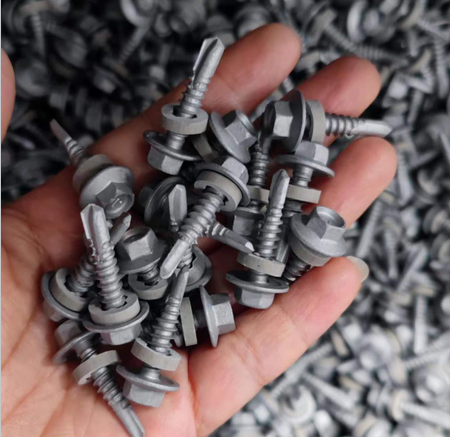Self-Drilling Screw Product Characteristics and Specifications Guide
Understanding Self-Drilling Screw Specifications and Their Products
Self-drilling screws are a critical component in various construction and manufacturing applications. These screws, often referred to as drill screws, feature a specialized point that allows them to create their own hole as they are driven into materials, which eliminates the need for pre-drilling. This unique characteristic not only enhances efficiency but also improves the integrity of the fastening.
Specifications of Self-Drilling Screws
1. Material Composition Self-drilling screws are often made from materials such as carbon steel or stainless steel. The choice of material affects the screw's strength, corrosion resistance, and overall durability. Carbon steel screws may be coated to enhance their resistance to rust, making them suitable for outdoor applications. Stainless steel screws, on the other hand, provide superior resistance to corrosion and are ideal for harsh environments.
2. Diameter and Length The diameter and length of a self-drilling screw are crucial specifications that determine its suitability for various applications. Common diameters range from 10 to 14, while lengths can vary from half an inch to several inches. Choosing the correct size is vital to ensure optimal hold and to prevent damage to the materials being joined.
3. Thread Design The thread design impacts the screw’s ability to hold materials together and resist pull-out forces. Self-drilling screws typically feature coarse threads for maximum grip in materials like wood and metal. Some screws are designed with specific thread patterns to improve performance in particular materials, enhancing the screw's holding power.
4. Point Type The design of the screw point is perhaps one of the most distinguishing features of self-drilling screws. Common point types include - Type 3 Standard point for drilling into thin metal sheets. - Type 4 More aggressive point designed for thicker materials. - Type B A flat point suitable for plastic and similar materials.
Each point type is engineered to penetrate specific materials with ease, ensuring effective fastening
.5. Finish The finish of self-drilling screws can vary significantly and impacts not only the appearance but also the performance. Zinc plating is common for moderated corrosion resistance, while more advanced coatings like ceramic or epoxy coatings provide enhanced weather resistance. Understanding the different finishes available can help in selecting the correct screw for specific environments, such as coastal or industrial settings.
self drilling screw specifications products

Applications of Self-Drilling Screws
Self-drilling screws are widely used across industries due to their versatility and ease of use. Here are some common applications
- Construction In building projects, self-drilling screws are often used to fasten metal roofing and siding. Their ability to penetrate thick metal without the need for pre-drilling saves time during installation.
- Manufacturing In the manufacturing industry, self-drilling screws are used in the assembly of machinery and equipment, where robust fastening is required.
- Automotive In automotive manufacturing, self-drilling screws are crucial for assembling parts and frames, providing secure connections that can withstand vibrations and shocks.
- DIY Projects With their user-friendly application, self-drilling screws are popular among hobbyists and DIY enthusiasts. They enable quick and effective assembly of various projects, reducing the need for extensive tools and time.
Conclusion
Understanding self-drilling screw specifications is essential for selecting the right product for any application. Each specification—material, diameter, thread design, point type, and finish—plays a significant role in the screw's performance and suitability. Whether you are a professional in the construction industry or an enthusiastic DIYer, knowing how to select the appropriate self-drilling screws can lead to better outcomes in projects, ensuring durability, efficiency, and overall satisfaction in your work.
In the end, embracing these innovative fasteners allows for more efficient assembly processes, lower labor costs, and improved safety in various industries, solidifying their place as fundamental components in modern construction and manufacturing. As technology and materials continue to evolve, we can expect further advancements in self-drilling screw specifications, enhancing their performance and applications for the future.
-
Top Choices for Plasterboard FixingNewsDec.26,2024
-
The Versatility of Specialty WashersNewsDec.26,2024
-
Secure Your ProjectsNewsDec.26,2024
-
Essential Screws for Chipboard Flooring ProjectsNewsDec.26,2024
-
Choosing the Right Drywall ScrewsNewsDec.26,2024
-
Black Phosphate Screws for Superior PerformanceNewsDec.26,2024
-
The Versatile Choice of Nylon Flat Washers for Your NeedsNewsDec.18,2024










